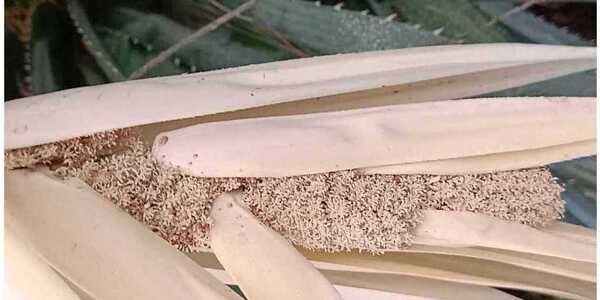[the_ad id=”6076″]
Within the intricate fabric of Indian culture, one can discover treasures that go beyond the constraints of time and space.
The Kewda or Keura flower, known for its profound significance in Ayurveda, Sanskrit literature, and religious ceremonies, is one such gem. This enchanting blossom, scientifically known as Pandanus odoratissimus, has been revered for centuries and continues to weave its fragrant magic in the hearts and minds of those who encounter it.
Sanskrit Reverie: The Kewda in Ancient Texts
To fully appreciate the cultural significance of the Kewda flower, we must delve into the annals of Sanskrit literature.
In Sanskrit, the Kewda flower is known as “Ketaki,” and its fragrance is celebrated as unparalleled. Its association with Lord Shiva is particularly notable. According to Hindu mythology, Lord Shiva once placed a curse on the Kewda for bearing false witness. This curse rendered the Kewda unfit for ritual worship in his honour, and it was forbidden to use the flower in the worship of Lord Shiva forever.
In classical texts like the “Sushruta Samhita” and the “Charaka Samhita,” which form the foundation of Ayurveda, Ketaki is described in the chapters on anaemia.
Worshiping Lord Ganesh with Kewda
While the Kewda lost favour in the worship of Lord Shiva, it found a new home in the veneration of Lord Ganesh. The elephant-headed deity, widely revered as the remover of obstacles, has a deep connection with the Kewda flower. Devotees offer Kewda garlands to Lord Ganesh during various religious ceremonies and festivals.
The association between Lord Ganesh and the Kewda flower is symbolic. Just as the Kewda’s fragrance pervades the air, filling it with a unique and enchanting aroma, Lord Ganesh is believed to fill the hearts of his devotees with purity and joy, removing obstacles and ensuring a smooth journey in life.
Medicinal Marvels: Kewda in Ayurveda
Beyond its religious significance, the Kewda flower boasts a treasure trove of medicinal properties, making it a valuable asset in Ayurvedic medicine. Ayurveda, the ancient system of holistic healing, has recognized the therapeutic potential of this flower for centuries.
Cooling Agent: Kewda is known for its cooling properties, making it an excellent remedy for conditions associated with excess heat in the body. It is often used to alleviate symptoms of heat-related disorders, such as heatstroke and excessive thirst.
Digestive Aid: The Kewda flower is also celebrated for its digestive benefits. It can aid in the digestion process, relieve indigestion, and soothe an upset stomach.
Aromatherapy: The fragrance of Kewda is not just a delight for the senses; it also has therapeutic effects. In aromatherapy, Kewda essential oil is used to reduce stress, anxiety, and mental fatigue. Its calming scent can promote relaxation and emotional well-being.
Anti-Inflammatory: Kewda has anti-inflammatory properties that can be beneficial in managing conditions like arthritis and joint pain. Its application in the form of a poultice or oil can provide relief from inflammation.
Skin Health: Kewda extracts are used in Ayurvedic skincare for their ability to rejuvenate the skin. They can help in reducing blemishes, improving skin texture, and providing a natural glow.
Kewda in Everyday Life
Beyond its use in rituals and medicine, Kewda finds its way into everyday life in various forms. The fragrant Kewda water, made by distilling the essence of Kewda flowers, is used as a natural perfume and to add flavour to sweets and beverages. It is also a common ingredient in traditional Indian desserts like kheer and kulfi. It is to Indian and Asian cuisine what vanilla is for Westerners.
Kewda is a symbol of hospitality in Indian culture. Guests are often welcomed with garlands made from these flowers as a sign of honour and respect. The fragrance of Kewda is believed to create a positive and inviting atmosphere.
In Indian weddings, the Kewda flower plays a special role. Garlands and decorations made of Kewda flowers as a symbol of their union. This tradition symbolizes the purity and sweetness of their relationship.
A Timeless Treasure
The Kewda flower is a testament to the enduring beauty of nature and the rich cultural heritage of India. Its journey through the annals of Sanskrit literature, its role in religious worship, and its invaluable place in Ayurveda highlight its significance in the lives of millions. From ancient texts to modern-day applications, the Kewda continues to be a source of inspiration, healing, and joy.
As we explore the world of Kewda, we are reminded of the interconnectedness of nature, culture, and spirituality. It serves as a poignant reminder that even in the hustle and bustle of modern life, there are treasures from the past that can nourish our bodies and souls, connecting us to a timeless wisdom that transcends generations. So, the next time you encounter the enchanting fragrance of Kewda, take a moment to appreciate the rich tapestry of history and tradition that it represents, and perhaps, offer a silent prayer of gratitude for the blessings it bestows upon us.
Image courtesy: Prabha Avinash

